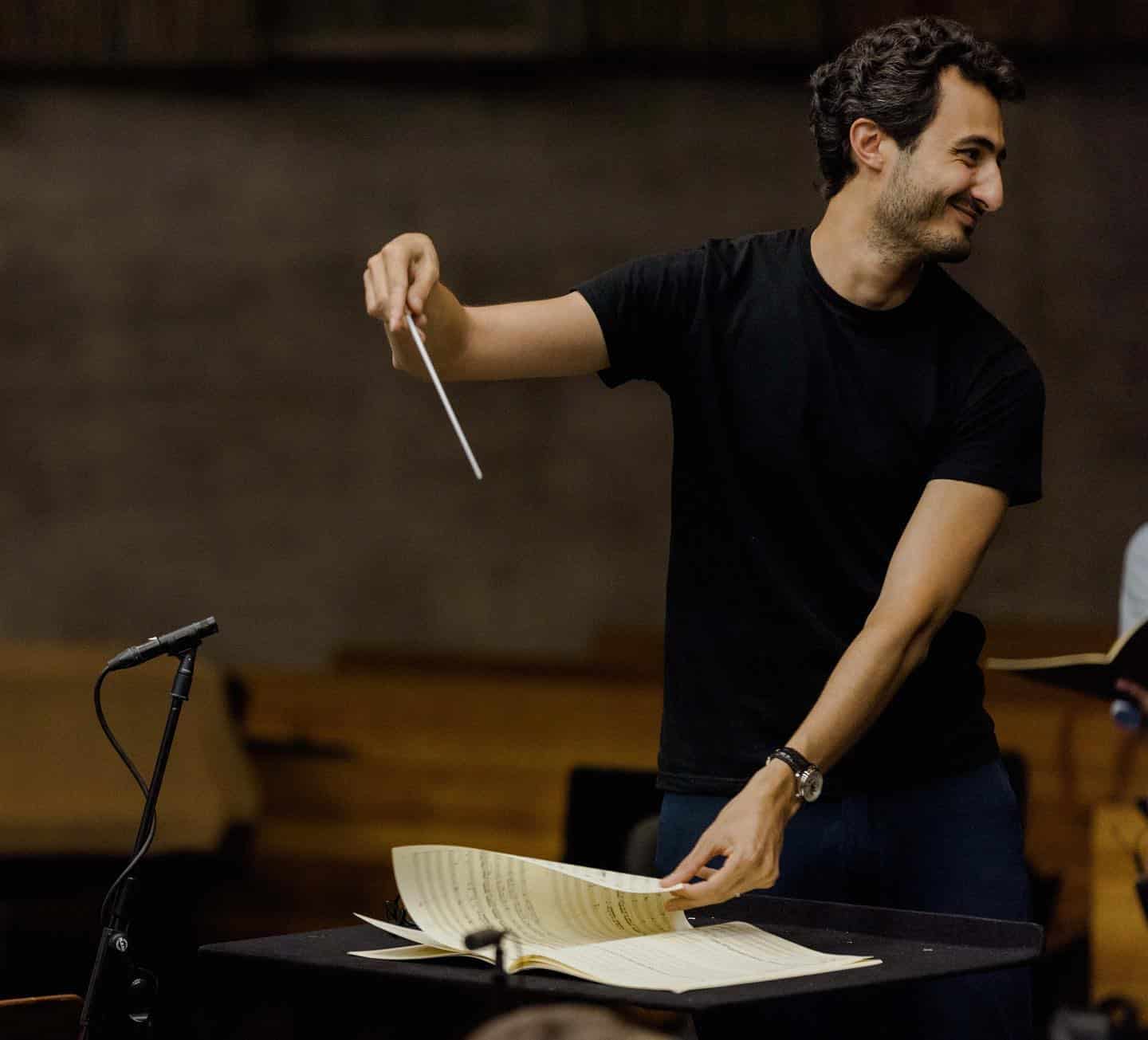Cleveland’s principal horn steps down
mainRichard King is only 46, but after 17 years he’s tired of the responsibility. ‘There’s never really an easy concert. It’s time to let someone else have a chance at it,’ he tells Zachary Lewis.
Richard will play fourth horn in the Cleveland Orchestra from now on.
Has that happened before in a frontline orchestra?






Roger Voisin ceded the principal trumpet seat in the Boston Symphony to Armando Ghitalla and then assumed a lower seat in the section.
Richard Solis in Cleveland did the same thing a while back, and retired for good a few years ago.
It’s nice that a principal horn should let others have a crack at it. Some notable American principals have not been half so considerate…
I can think of two from the Montreal Symphony, if I’m remembering correctly: a second horn stepping down to fourth and associate flute stepping down to second.
This is all very noble but he’s lucky there was a 4th horn spot open. Dale Clevenger and many others haven’t had that luxury. You either walk the high wire playing 1st or you’re out in the street with no retirement. Unless there happens to be a section position open, as I guess there was in Mr. King’s case. Lucky guy.
Dale Clevenger was already 73 when he retired. King being only 46 offers rather different possibilities. It may well be that he waited until there was an opening elsewhere in the section to make this move.
In Philip Farkas’ book on horn playing he said he didn’t know any horn players who didn’t smoke because i was such a tense job.
The previous principle horn of the Dallas Symphony retired from that position but served another year elsewhere in the section with the title “principle emeritus.”
“Emeritus” seem to be the way the Dallas Symphony has retained several players who are moving out of the top position.
Norbert Hauptmann of Berlin Phil stepped back to 4th horn after a long and distinguished career as principal horn and continued to play up to the mandatory retirement age in Germany of 65.
Congrats to Rich King for his marvelous tenure and good sense which follow a noble line of principal players who decided to relinquish their chair on their own terms.
In 1902, Fritz Scheel selected Anton Horner as Principal horn of the Philadelphia Orchestra, where he served an amazing forty seasons. Anton Horner moved from the first horn chair at the peak of his career, making room for the next generation, including a succession of his Curtis Institute students. Anton Horner was Co-Principal horn with Domenico Caputo during the 1929-1930 and 1930-1931 seasons. Beginning in the 1938-1939, Anton Horner moved to the Third Chair of the horn section, where re remained until his retirement at the end of the 1941-1942 season. Anton Horner taught at the Curtis Institute from 1924-1942. His students included Arthur Berv, James Chambers, and Mason Jones, all of whom went on to become Principal horns with the Philadelphia Orchestra.
From the website: http://www.stokowski.org/Philadelphia_Orchestra_Musicians.htm
Thanks, Bob!
Berv went from Philadelphia to NBC’s principal horn. Chambers went from Philly where he served as principal while Jones was in the military to the NY Phil’s principal chair when Jones returned.
Bravo, Mr. King! You’re definitely a model for modesty and team-playing, besides being a model for any brass player. This is how any musician must act when he feels that he can’t give his best to the team. Unfortunately, more musicians let their ego guide them.
One could cite the Ottensamer dynasty of clarinetists at the Vienna Phil. Papa Ernst had 2 sons, he gave up first chair for his elder son Daniel while he played second. The younger son, Andreas, seeing no future in the family business in Austria, had to find a job in another country, settling for principal clarinet at some orchestra called Berlin Phil. Oh the curse of being born second, the spare and not the heir!
I don’t think so – unless the situation has changed very recently, Ernst Ottensamer is still 1st clarinet with his son Daniel and Matthias Schorn
In 1959, so that Reiner could hire Sidney Harth as CSO Concertmaster, John Weicher was persuaded to take the first chair of the Second Violin Section.
There are a lot of great principal horn positions that have opened up — the Berliner Philharmoniker, Chicago Symphony, and Cleveland Orchestra. I’ve got a bad feeling that our own star first horn here in Los Angeles, Andrew Bain (who has played guest first horn with Berlin and Chicago) — currently stuck in a mediocre section filled with empty seats waiting to be filled, freelance fill-in players, and absolutely no unified sound — might be leaving soon if he goes after one of those jobs.
I know it’s not really the point here, but it does bother me a little bit that they’ll just GIVE him the 4th horn position. Playing 4th horn is a different skill set than playing principal, and you can’t always assume someone who’s played principal for a long time will fit the bill for 4th. There’s PLENTY of principals out there who would not be good section players. There really should be a legitimate audition.
Another example: Larry Strieby stepped down to section horn from assistant principal of St. Louis Symphony.
http://www.stlsymphony.org/en/musicians/orchestra/lawrence-strieby/
King has been there before. Remember that King started in the section and was promoted to First Horn. When he steps back, it’s to where he started.
Surely 4th horn is the one with the L O W L O W notes, aka Lord of the Rings orc time … maybe he wanted to let his lips relax a little …)
Mr. King’s predecessor as principal horn of the Cleveland Orchestra, Richard Solis, stepped down from first to fourth chair in 1995 after 18 seasons as principal horn. He played fourth horn until his retirement in 2012-2013. Both King and Solis play equally well in the high and low registers of the horn, so the switch would be no problem for them.
http://www.cleveland.com/musicdance/index.ssf/2012/12/longtime_cleveland_orchestra_h.html
Neithard Resa of the Berlin Philharmonic was principal violist for (I believe) over 30 years before stepping down and taking up a section chair.
Let me say unequivocally that I am sure Rich King has the talent and playing ability to take any chair position. I knew Richard a very long time ago at a high school orchestral summer institute. At a young age he was probably the most hard working musician there. His sound during our rehearsals and concerts drew raves from the brass section from the Philadelphia Orchestra in residence. His dedication to endless hours of practicing his instrument and music was obvious then. I am sure it is no less now.
Great read. Thanks.